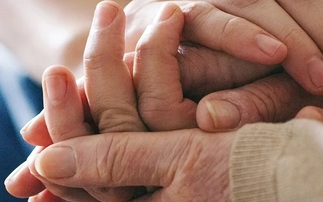Scott Cadger, head of claims and underwriting strategy at Scottish Widows, examines the importance of having a financial safety net in place
As an industry, we have a duty of care to discuss with clients the financial implications of suffering a critical illness or bereavement and the effect a stroke can have on people and their families.
Strokes are the fourth largest cause of death in the UK and the leading source of disability, according to the Stroke Association.
More than 100,000 strokes occur in the UK each year - that is around one stroke every five minutes. And although many people still associate strokes with the elderly population, RedArc statistics released in February 2018 reveal that 60% of patients they have treated fall within the traditional working age bracket of 40 to 59.
At Scottish Widows, strokes are the third largest reason we receive for a critical illness claim, behind only cancer and heart attacks.
The average age of a critical illness claimant last year was 52, and the youngest was aged just 24.
We paid out a total of £8.7 million in life and critical illness claims related to strokes in 2017, supporting the individuals and families involved during this difficult time in their lives.
The good news is that more people are surviving a stroke than ever before. However, two thirds of survivors leave hospital with a disability, with strokes causing a greater range of disabilities than any other condition.
The statistics
- It's estimated that 60% of survivors have visual problems immediately after their stroke.
- Around a third of survivors experience some level of aphasia, resulting in difficulty speaking, reading, writing or understanding language.
- Limb weakness is common after a stroke. Over three quarters of survivors report arm weakness, making it difficult to carry out activities of daily living, while three quarters report leg weakness, making walking and balancing difficult.
- Fatigue is common, making returning to work difficult, and can be associated with depression following a stroke.
- Half of survivors have difficulty swallowing, making eating and drinking difficult.
- Loss of bladder and bowel control is common with around half of survivors experiencing problems.
UK Stroke Association Jan 2017
The process of recovery is very much dependent on symptoms and their severity and there is no set pattern. Some may recover quickly but others will need long-term support to help them regain their independence.
A specialist team in hospital will set goals to be followed up with the help of a number of health care professionals including community stroke nurses, physiotherapists and speech and language therapists.
Financial implications
As sudden as the impact is on health, there's also an immediate and perhaps unforeseen impact on an individual's financial circumstances. The Stroke Association reports that:
- 69% of 25-59 year olds are unable to return to work
- 65% of 25-59 year olds report a decrease in household income
- 63% are living in fuel poverty
- 58% report and increase in household expenses
- 40% cut back on food
A stroke can often result in disruption to an individual's ability to work and the loss of an income can have huge implications for those who depend on them. Often, the main source of household income is lost and families are faced with the hidden costs of rehabilitation, recovery or life-long disability. However, with our own research showing that fewer than one-in-10 people have a critical illness policy in the UK, we have the potential to help so many more.
Scottish Widows' research reveals that 21% of people in the UK admit their household would not be financially secure for any length of time if it lost its main income as a result of critical illness. And more than a third (35%) admit their savings would last no more than three months if they were unable to work.
Appropriate financial protection is therefore something that everyone should consider to take away some of the hardship that might follow the difficult circumstances which could arise after a stroke.
Many people believe that they'll be able to rely on the State if illness strikes, and while this could offer a basic level of support, we would firmly advise people to make their own provision for themselves and their families in order to maintain their current lifestyle should the unexpected happen.
It's human nature to avoid thinking about the worst, but the peace of mind that financial protection provides can be liberating.
As an industry we need to do more to show the critical role that appropriate financial protection advice, solutions and support services play in safeguarding the financial welfare of our families.
Talk to your clients about their financial resilience and if they have a Plan B in place to support them through the implications of a critical illness or death.
Let's perform our duty to protect.
Scott Cadger is head of claims and underwriting strategy at Scottish Widows
Explore five ways critical illness cover can help with your protection conversations











